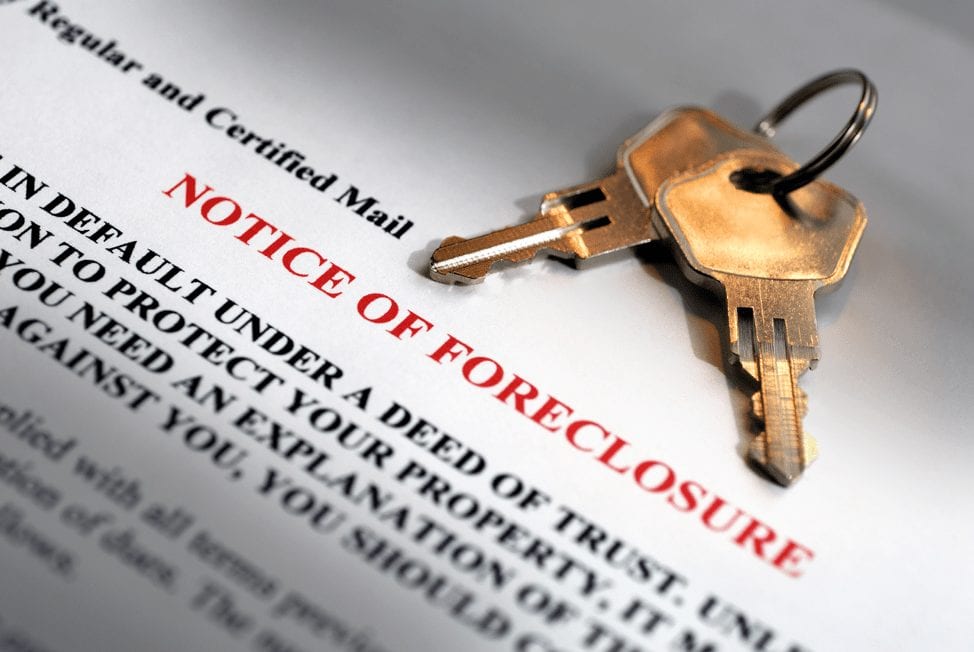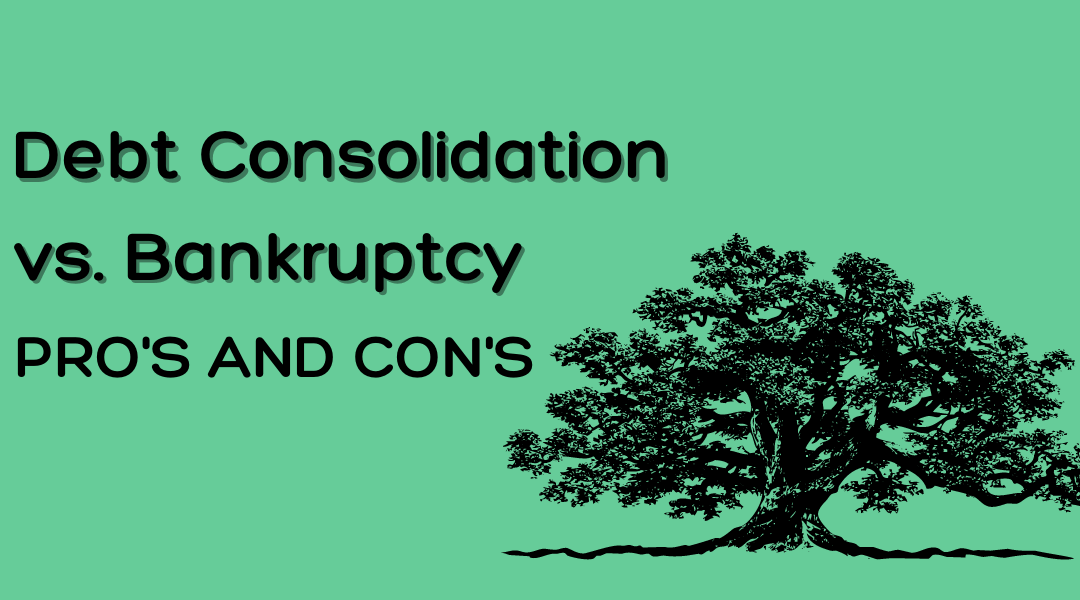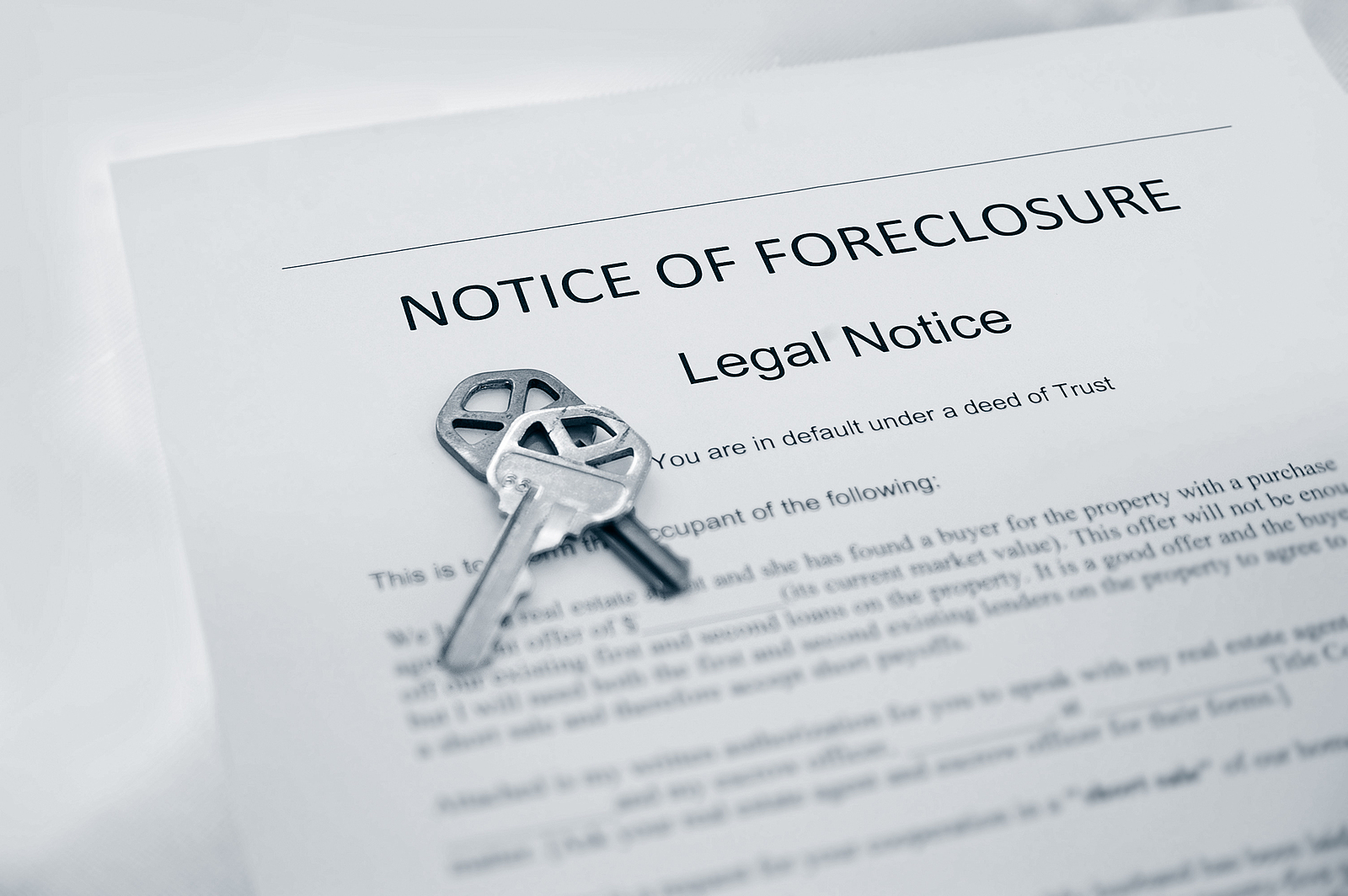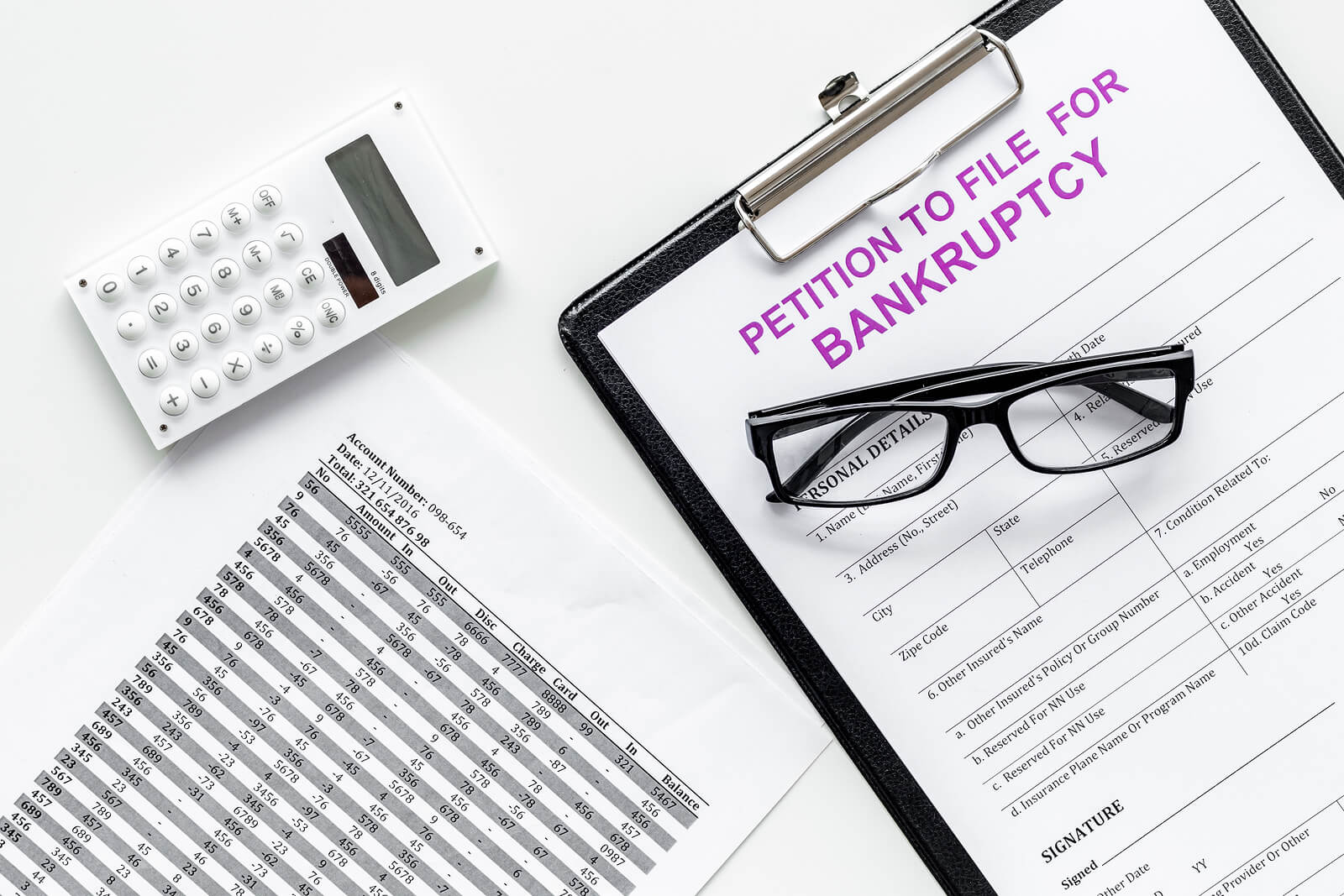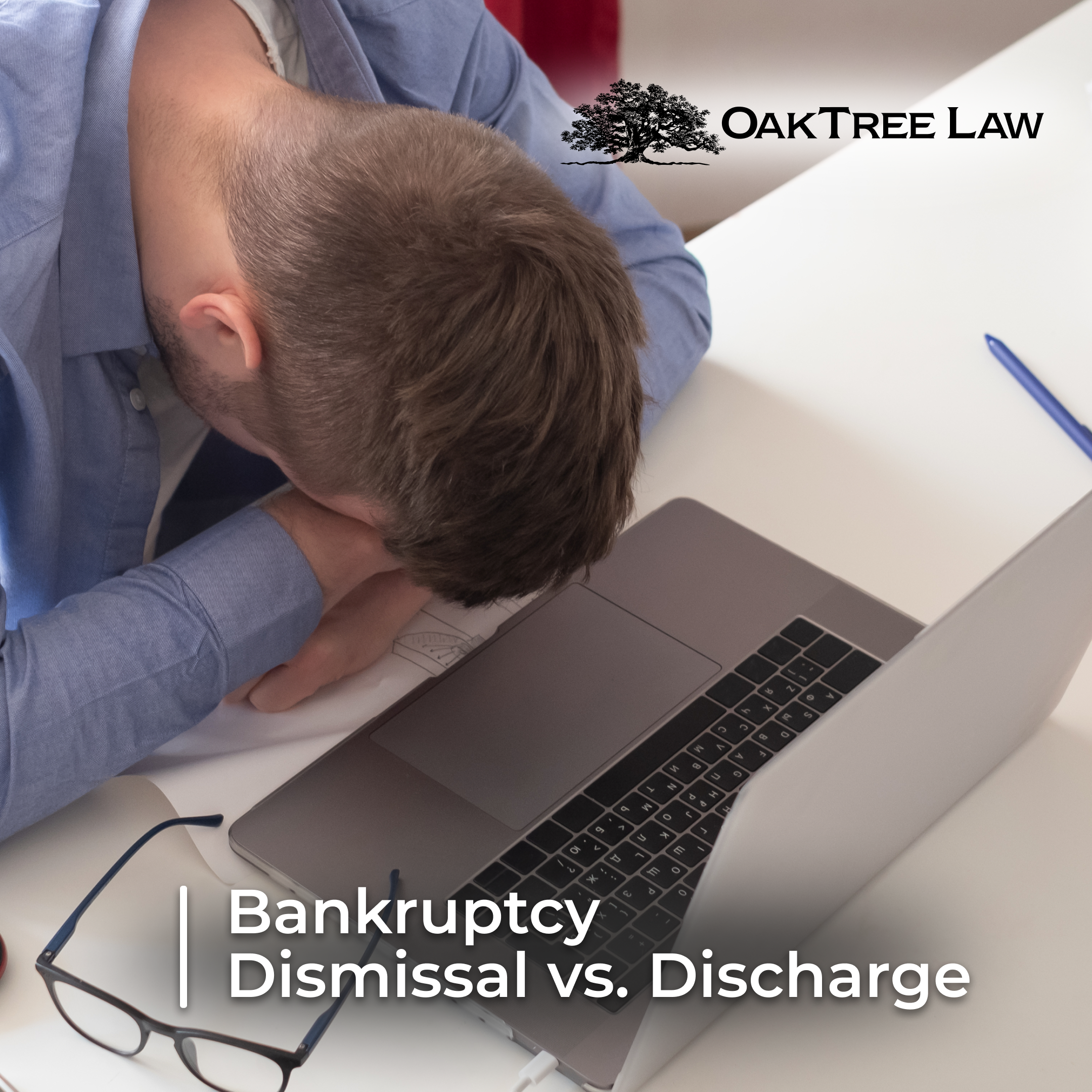Going through bankruptcy can be an exhausting and confusing time, it’s only natural to be curious about your situation. Fortunately, the Los Angeles bankruptcy attorneys at OakTree Law can assist you every step of the way. Here are some answers to the most common bankruptcy questions we receive.
Filing for bankruptcy can help regain control over your finances and have many other benefits. But if you’re considering this route, it’s likely you have many questions. It’s best to explore your options and learn as much as you can. While the Los Angeles bankruptcy attorneys at OakTree Law can assist you every step of the way, here are some answers to common bankruptcy questions we receive:
What Kind of Bankruptcy Is Right for Me?
Your unique financial situation is the primary factor in what type of bankruptcy you file for. The majority of bankruptcy cases are Chapter 7; in 2019, they represented 62% of all bankruptcy petitions. Chapter 7 puts an automatic stay on collection activity and liquidates credit card, medical, and other kinds of debt. A discharge takes about 6 months. If you don’t pass the Means Test, you may be eligible for Chapter 13 bankruptcy, in which a payment plan is created.
Does Bankruptcy Get Rid of All Types of Debt?
While personal bankruptcy can eliminate consumer debt and cease wage garnishments and repossessions, it doesn’t cover everything. Chapter 13 sets limits on the amount of unsecured and secured debt you can have to qualify. With any type of bankruptcy, you cannot, in most cases, have child support, alimony, court fines, or restitutions for criminal actions or personal injury cases discharged. It’s rare to get a discharge on student loans, while bankruptcy won’t resolve many IRS garnishments. Only if your tax debt is three years past due will it qualify for an exemption.
Does Filing for Bankruptcy Mean I’ll Lose My Property?
There are exemptions for what assets can be used to settle your bankruptcy case. Homes, cars, and wedding rings are considered essential property and therefore exempt. Also, your retirement funds can be protected as well. Both federal and state laws set bankruptcy exemptions, so what’s protected against creditors varies from state to state.
Under Chapter 13, you’re more likely to keep your home if you’re behind on mortgage payments, in foreclosure, or there’s more equity than you’re able to protect. If you file for Chapter 7, your property goes to the bankruptcy estate, which is managed by an appointed trustee. Property can be exempt to maintain your home and employment; remaining assets will be sold and distributed to creditors by the trustee.
Will Bankruptcy Help Me Catch Up on Overdue Mortgage Payments?
If you file for Chapter 7 when behind on a mortgage, you could lose your home. An automatic stay can stop a foreclosure temporarily, but filing won’t bring your mortgage out of default. A Chapter 7 filing won’t wipe out a lien, as a mortgage is considered secured debt. You can still face foreclosure after the automatic stay is lifted or the bankruptcy case ends. However, Chapter 13 can enable you to catch up on payments using a three- to five-year repayment plan.
Do I Need to Withdraw My Entire Bank Account Before Filing?
Withdrawing all your money is a bad idea. In fact, no major changes to your financial assets should be made before filing, unless under the advice of an attorney. Any movement of funds will be reported to the court, as would be any giveaway of personal property with the intent of protecting it against creditors or the bankruptcy estate.
Must I Give Up All My Credit Cards?
A bankruptcy filing must include all debts and any amounts of money that you owe. There’s no way to pick and choose what debts to declare bankruptcy on; all unsecure debts will be discharged. The exception is with secured debts, like a mortgage or car loan, which you can choose to determine your intentions for.
Does a Bankruptcy Filing Have to Include My Spouse?
Only if both spouses stand to benefit from filing for bankruptcy and having debts discharged. But if the debts are in only one spouses’ name, they can file independently. Nonetheless, the non-filing spouse must provide proof of income unless the couple is separated and living apart.
Can I Avoid a Lawsuit by Filing for Bankruptcy?
An automatic stay stops all collection activity, and that includes lawsuits. Notify the state court when you file your bankruptcy case, so it’s aware of the automatic stay and can take steps to stop any pending lawsuits. Bankruptcy also stops homeowner’s association lawsuits, although you’ll still owe past-due HOA fees that you can repay with a Chapter 13 repayment plan.
Do I Have to Appear Before a Judge?
Once you file for bankruptcy, there’s usually little contact with the court. Your attorney will mange most of the process and advise you if any court appearances are necessary. It’s not likely you’ll be required to appear in court. However, you will likely attend a meeting of creditors, during which you’ll be asked questions by your trustee and any creditors that show up. The discharge becomes official when a judge signs the discharge order.
Contact OakTree Law
At OakTree Law, our bankruptcy attorneys understand all aspects of the law and understand the advantages of filing for Chapter 7 or Chapter 13 bankruptcy. Their knowledge and expertise can help avoid some of the risks associated with the process. Committed to helping find a solution that works for you, they can help avoid foreclosure or even advise you on bankruptcy alternatives such as loan modification. To learn more and/or request a free evaluation, contact us online or call 888-348-2609 today.

